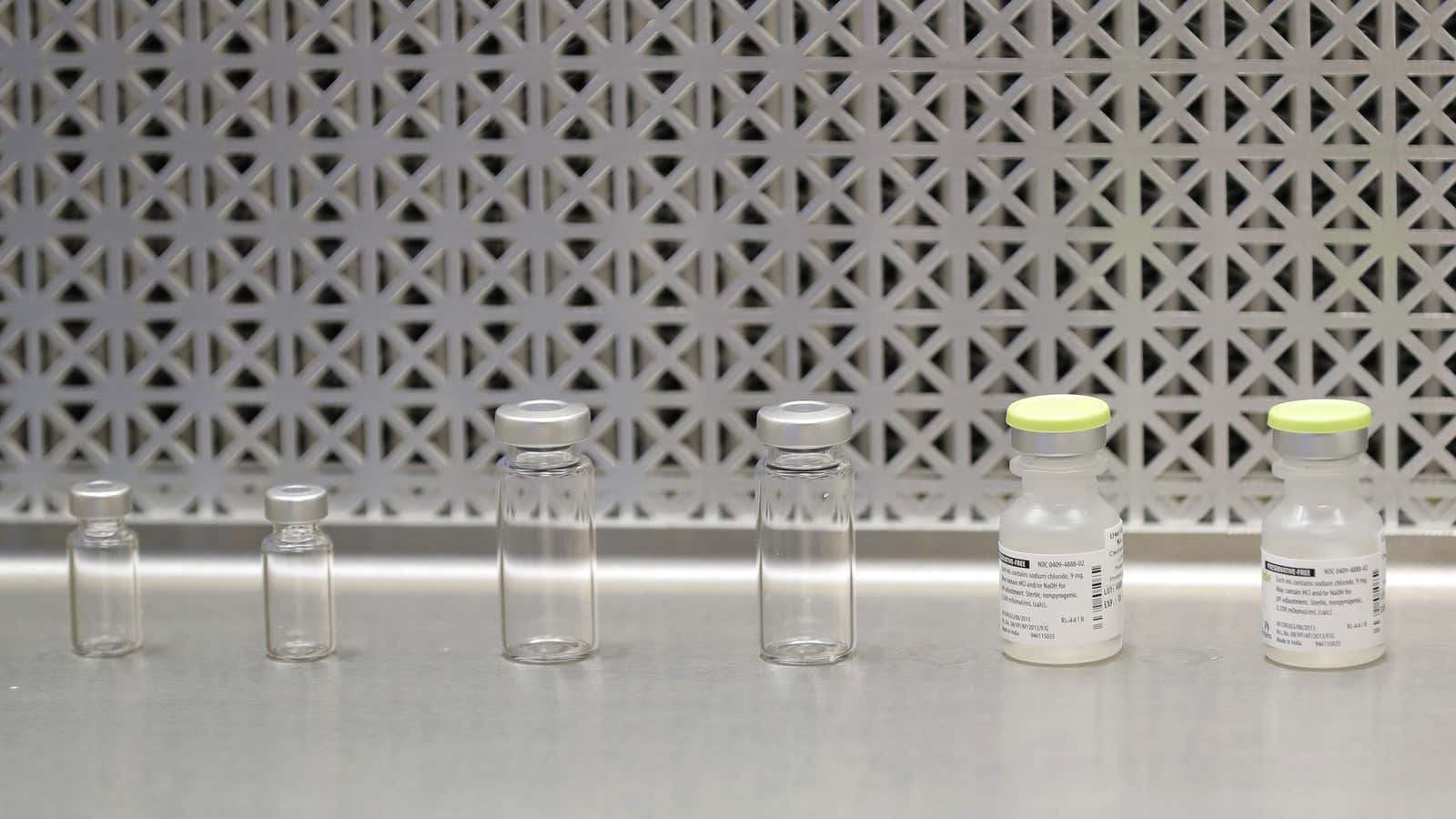The US federal government is betting on vaccines to end the Covid-19 pandemic.
On July 22, the Biomedical Advanced Research and Development Authority (BARDA) announced that it would buy up the first 100 million doses of a potential vaccine from Pfizer, a US-based company, in partnership with the German company BioNTech. The nearly $2 billion investment is just the latest pre-order from the US’s Operation Warp Speed (pdf), which aims to acquire at least 300 million vaccine doses by the end of 2020.
But if speed is the program’s goal, it’s certainly not the only qualifier for investment. Collectively, the US pre-orders represent just two of the five Covid-19 vaccines that are furthest along in the clinical trial process, and four of the 13 in later-stage trials.
Of the 160 vaccines in development, 13 are in phase 2 and phase 3 clinical trials, which investigate a vaccine’s efficacy and long-term safety profile (some are being run in parallel with phase 1, safety-only trials). Vaccines that have already made it to these later-stage trials have the best chance of concluding within BARDA’s hyper-accelerated 2020 timeline. It’s a tall order: Without the pressure of a pandemic, this research normally takes over a decade to conduct.
But the US has only invested in four of these later-stage vaccine candidates. Along with Pfizer, BARDA has paid in advance for potential vaccines from Moderna, AstraZeneca, and Novovax. It has also put in pre-orders for vaccines from two companies that have not yet started phase 2 trials: Sanofi, and Janssen, a subsidiary of Johnson and Johnson.
What unites these companies, if not their clinical trial status? With the exception of Sanofi, a French company, and AstraZeneca, based in the UK, all of these manufacturers are headquartered in the US. Of US-based companies in late-stage trials, the only one that hasn’t received an early bid from BARDA is Inovio Pharmaceuticals, which is based in Pennsylvania.
Meanwhile, all of the unfunded groups in phase 3 trials—the last stage of testing—are based in China.
As Operation Warp Speed decides which companies are worthy of investment, it’s good to remember that this isn’t a simple race to the finish: Some of these vaccine candidates are bound to fail at different stages of testing. So it makes sense that the US would want to hedge its bets—even between companies that seem to lag behind.
In the end, the clinical trial horse race may even be deemed irrelevant: Regulatory authorities may decide to distribute some of these vaccines without finishing safety tests, if they believe the known risk of the ongoing pandemic outweigh the potential complications from a new vaccine.
